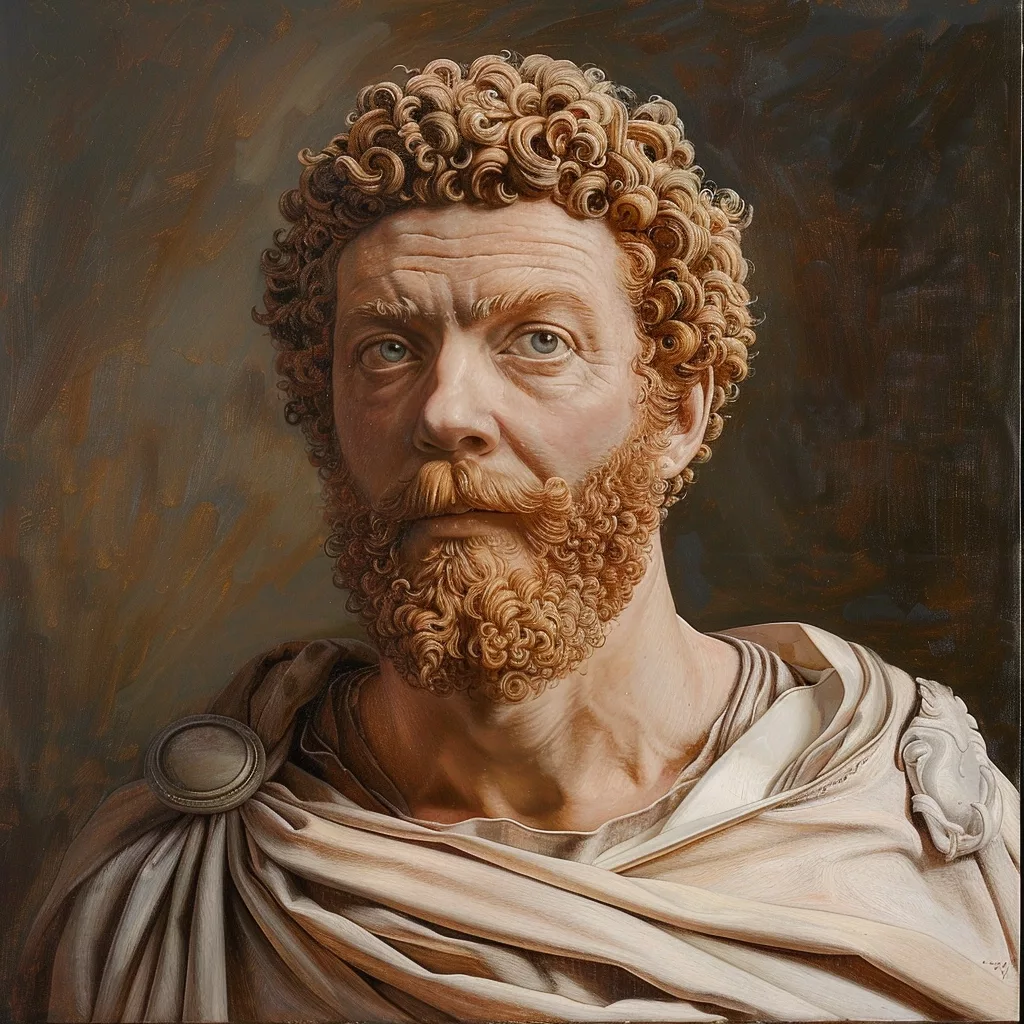Marcus Aurelius (AD 121-180)
A great task faced Marcus Aurelius when he became the Roman emperor in AD 161, as successor to his uncle, Emperor Antonius Pius. Generations of luxury had made the patricians, or nobles, weak and selfish. The middle class was disappearing, and the working class was being reduced to a state of slavery. Germanic tribes were at the borders of the empire, while few Romans seemed willing to defend their homeland.
Marcus Aurelius had been trained in the Greek Stoic philosophy, and he followed it throughout his life. He placed the good of society before his own comfort. He put good government into effect, limited the gladiatorial games, and passed laws that benefited slaves. Although he had noble principles, Marcus Aurelius persecuted the Christians for fear they would destroy the state. Although he loved peace, he was a good warrior and succeeded in defending the border provinces against invasion. In his spare moments he jotted down in Greek the rules that guided his own conduct. The resulting volume of 'Meditations' was for many generations one of the world's most admired books of practical and political wisdom.
Marcus died on March 17, 180. He was the last of the "five good emperors," whose combined reigns marked the golden age of the Roman Empire.


